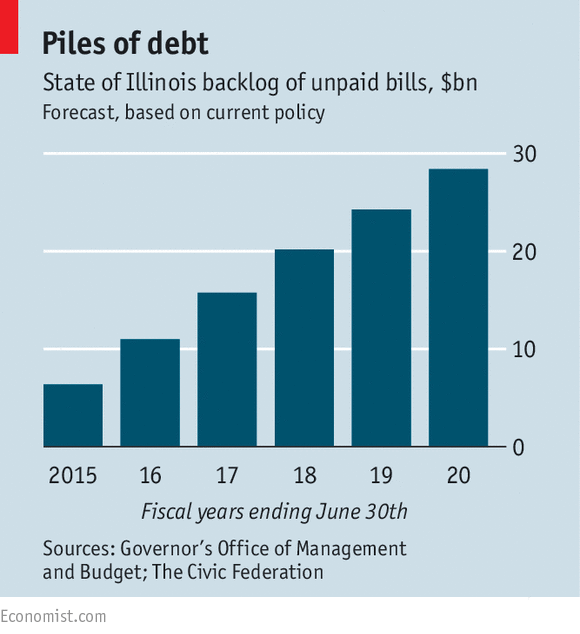By Bob Rakow and Jack Murray
Orland Park would see a loss of $3 million in state funds under Gov. Rauner’s proposed budget, a group of Chicago area mayors said last week.
Local mayors oppose Gov. Rauner’s first budget plan unveiled last Wednesday as they contemplate the cuts it proposes in the share of state income tax funds Illinois disburses to cities and villages.
The governor’s call to reduce those funds by 50 percent would cost localities nearly $50 per resident, according to the Metropolitan Mayors Caucus, which is chaired by Orland Park Mayor Daniel McLaughlin. Thus, Orland Park with a population of 60,000 would see its annual local share cut by about $3 million, the mayors group said in a statement on its website.
“The Caucus’ member mayors from 273 municipalities in the Chicago metropolitan area are very concerned about how this $600 million cut will affect their abilities to provide essential services to their residents,” the statement added.
“I’m not sure Governor Rauner understands the effect this proposal will have on local governments,” Mayor McLaughlin said in the group’s statement. “Our annual budgets have already been adopted. Communities are counting on their share of the income tax to pay for local services. Reducing revenues will force communities to have to make further decisions to lay off police officers and firefighters, end repairs to critical infrastructure and cut other key services. These are real decisions that will impact the everyday lives of our citizens.”
To the north of Palos-Orland, the six communities of Worth, Palos Hills, Chicago Ridge, Oak Lawn, Hickory Hills and Evergreen Park could combine to lose $6 million a year if Rauner’s proposal becomes reality and that has some of their mayors fuming.
In Oak Lawn, Mayor Sandra Bury is concerned but added she would welcome an opportunity to show what the cuts could do to her community and towns all across the state.
“I would like to invite him to Oak Lawn anytime,” Bury said last week in reaction to Rauner’s proposed 50 percent cutback in towns’ annual share of state income tax revenue.
She thinks he should see her town as it would serve as a model for him to check out.
Bury would like to open the village’s books to the newly-elected governor and explain that Oak Lawn and other communities throughout the southwest suburbs cannot afford such a significant revenue hit.
She’d also like to point out that Oak Lawn—like most other towns—does not have cash reserves on hand for a rainy day.
If approved, Rauner’s cuts would mean an estimated $2.7 million annual revenue loss for Oak Lawn, Bury said. It’s a figure the mayor has a tough time grasping. Indeed, the village would have few options to make up the loss.
“You either layoff or raise taxes. It’s wrong,” Bury said.
At a time when Oak Lawn and other communities are already making budget cuts to fully fund employee pensions, a significant revenue reduction from the state is the last thing they need, Bury said.
McLaughlin and Bury are not alone in their displeasure with Rauner’s plan.
Palos Hills Mayor Gerald R. Bennett said the proposal is unnecessary.
“All they’re doing is putting (the burden) on the backs of local residents,” said Bennett, president of the Southwest Conference of Mayors. “They’re going to bankrupt local governments.”
Palos Hills and other communities such as neighboring Hickory Hills already operate with fewer employees in key departments such as public works than they did just a few years ago, Bennett said.
Additional reductions in manpower would make it extremely difficult to provide basic services to residents. Additionally, towns would have a tough time avoiding cuts to the public safety, he said.
“It will bankrupt us. The fight is on, I guess,” Bennett said.
Evergreen Park could lose approximately $500,000 annually if Rauner’s proposal becomes a reality. “I hope he doesn’t fix (the state’s financial problems) on the back of local governments,” said Evergreen Park Mayor Jim Sexton. “We can’t afford to pay other people’s bills.”
Worth Mayor Mary Werner said she’s uncertain how her community would absorb additional revenue losses, which would also equate to about $500,000 under Rauner’s plan.“That would be a huge loss. We’ve already made major cuts,” Werner said, referring to numerous staff reductions made within the past five years.
“I understand the state of Illinois is a horrible, horrible financial state,” Werner said. She added that municipalities are required by law to approve a balanced budget while the state is remedy its budget woes on the backs of municipalities.
“We’ve been making sacrifices for years,” Werner said. “At the local level, we’re all doing a good job living within our means.”
Hickory Hills Mayor Mike Howley agreed. He said his city relies on the utility tax to help balance the annual budget. The city has put off capital improvement projects such as street and sewer work to help make ends meet.
Chicago Ridge Mayor Chuck Tokar echoed the feelings of his mayoral colleagues.“That’s a big chunk of change,” Tokar said. “I wasn’t expecting [Rauner] to say that. I can’t replace $600,000, $700,000.” Tokar admitted that that his town is fortunate to draw sales taxes from a regional shopping mall, but that revenue stream would never replace the state’s money, he said.
At least one local elected official said he agreed with Rauner’s plan.
“I would say there’s always room for cuts,” said Palos Hills Alderman Al Pasek. He added that smaller communities should consider merging if they can no longer go it alone. But mayor and many aldermen














